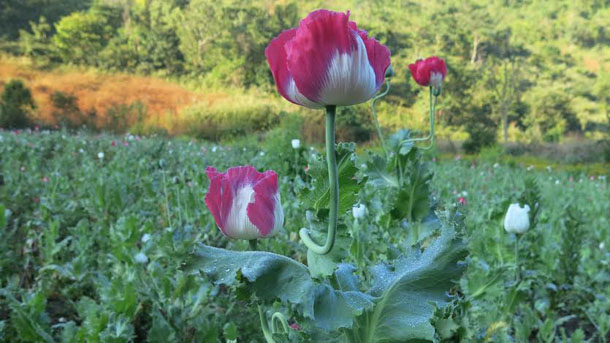RANGOON — A military representative in Parliament’s Upper House has blamed Burma’s growing opium woes on poverty induced by economic sanctions, according to state-run media.
Tuesday’s New Light of Myanmar newspaper reported that an unnamed military MP claimed rural Burmese continued to cultivate the crop because it offered “easy money” to poor farmers who have felt the sting of economic sanctions imposed by the West.
Those sanctions have largely been lifted as relations between the United States, the European Union and Burma have warmed under the administration of reformist President Thein Sein.
Despite the increasing economic engagement that the easing of sanctions has brought, opium production has continued to rise. The UN Office on Drugs and Crime said in its annual Southeast Asia Opium Survey in December that it expected output of the crop in Burma last year to rise 26 percent over 2012 production, to some 870 metric tons.
Burma is the world’s second-largest producer of opium, after Afghanistan.
The military MP made the remarks in introducing a proposal on Monday “to urge the union government to combat the practice of cultivation, trafficking and abuse of opium with the participation of the people,” The New Light of Myanmar reported.
It was passed by the Upper House, the newspaper added, without indicating what specific measures, if any, were included in the proposal.

















